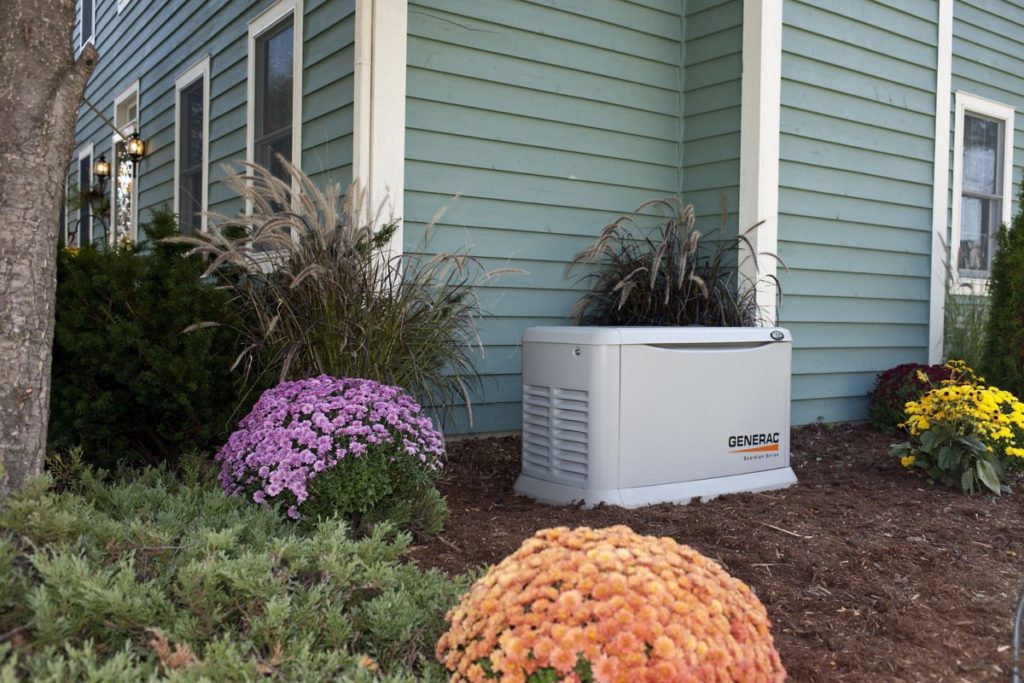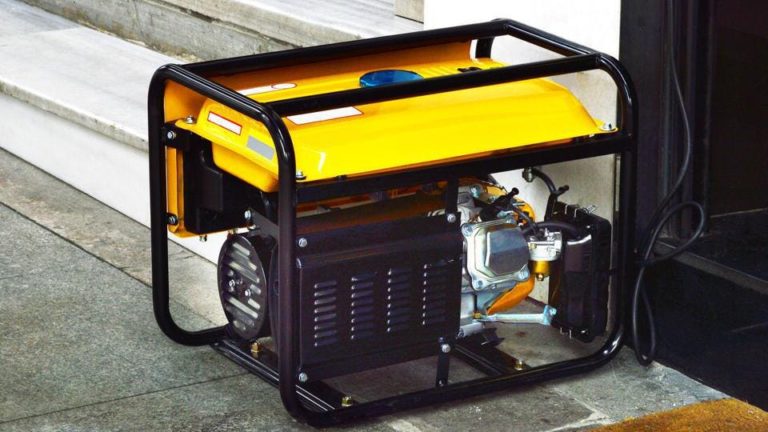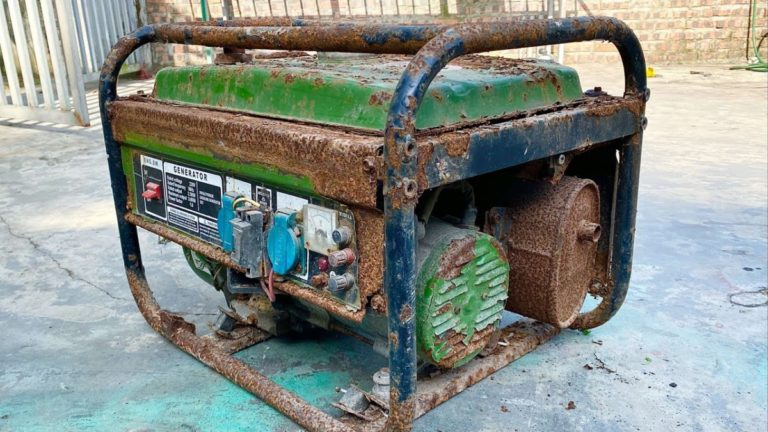When it comes to powering your off-grid home, you may be considering between a standby generator and a portable generator.
While both options have their own advantages, there are several key benefits to choosing a standby generator over a portable one.
A standby generator is permanently installed on your property and is designed to automatically kick in during power outages or other emergency situations, providing uninterrupted electricity to your home.
In contrast, a portable generator must be manually operated and can be less reliable in the event of an extended power outage.
Standby generators are typically more energy-efficient than portable models, which can save you money on fuel costs over time.
Having a permanently installed generator can increase your home’s value and appeal to potential buyers if you decide to sell it in the future.
Overall, choosing a standby generator for your off-grid home offers numerous benefits that make it well worth considering over a portable alternative.
Reliability
Standby generators are specifically designed to be continuously connected to your home’s electrical system and automatically turn on when your primary power source fails or is not available. Portable generators, on the other hand, must be manually started and may not be as reliable in providing a consistent power supply.
Standby generators are specifically designed to be continuously connected to your home’s electrical system and automatically turn on when your primary power source fails or is not available.
This means that you can enjoy uninterrupted power supply even during power outages or natural disasters.
In contrast, portable generators must be manually started and may not be as reliable in providing a consistent power supply.
For instance, if you are away from home when a power outage occurs, you may not be able to start the portable generator in time to provide backup power.
Portable generators require regular maintenance and fueling, which can be time-consuming and inconvenient.
With standby generators, you can rest assured that your home’s electrical system will be fully powered, even during unexpected outages, providing you with peace of mind and security.
Noise
Standby generators are typically located outside the home and are enclosed in a soundproof box to reduce noise levels. Portable generators, on the other hand, can be noisy and may not be as suitable for residential use.
Standby generators, installed outside the home, are encased in soundproof boxes to minimize noise levels.
This design feature is important in residential areas, as it allows homeowners to enjoy a peaceful living space without the disruptive sound of the generator.
In contrast, portable generators are typically louder and may not be as suitable for residential use.
When choosing a generator for residential use, it’s essential to prioritize noise reduction features, such as soundproof boxes or enclosures, to ensure a comfortable living environment.
These features can help minimize the noise levels of the generator and provide a more serene living space.
Fuel Efficiency
Standby generators are typically more fuel-efficient than portable generators since they are designed to run continuously. Portable generators, on the other hand, may consume more fuel when not in use.
Fuel efficiency is a important consideration when selecting a generator, and standby generators have a distinct advantage in this regard.
Since standby generators are designed to run continuously, they are optimized for fuel efficiency and can consume less fuel than portable generators.
This is because portable generators are built for temporary use and are often idling or running at low loads, which can result in less efficient fuel consumption.
In contrast, standby generators are engineered to operate at maximum efficiency and use less fuel while providing a constant source of power.
This means that standby generators can save you money on fuel costs over the long term, making them a cost-effective option for your power needs.
Standby generators have a longer lifespan and require less maintenance, which can further reduce your overall cost of ownership.
So, if fuel efficiency is your top priority, a standby generator is the smart choice.
Maintenance
Standby generators are designed for permanent installation and are more accessible for maintenance and repair. Portable generators, on the other hand, may require more maintenance and repair work due to their constant relocation and exposure to the elements.
Standby generators, as their name suggests, are designed for permanent installation and are more accessible for maintenance and repair.
Since they are not subject to the rigors of frequent relocation, standby generators experience less wear and tear on their mechanical components.
Moreover, their permanent installation allows for easy access to the unit’s electrical and mechanical components, making it simpler to diagnose and address any issues that may arise.
This accessibility also allows for regular maintenance to be performed more easily, such as oil changes, filter replacements, and fuel tank inspections.
As a result, standby generators typically require less maintenance and repair work compared to portable generators.
On the other hand, portable generators are more prone to require more maintenance and repair work due to their constant relocation and exposure to the elements.
These generators are often moved from one location to another, which can cause vibrations and jolts that can loosen connections and wear on the unit’s components.
Portable generators are typically used in outdoor settings, where they are exposed to harsh weather conditions such as rain, dust, and extreme temperatures.
This exposure can lead to the accumulation of dirt, debris, and moisture, which can cause corrosion and other issues if not properly maintained.
As a result, portable generators may require more frequent maintenance and repair work to ensure they continue to operate effectively and efficiently.
Size
Standby generators come in a range of sizes to match the power needs of your off-grid home. Portable generators may not be suitable for larger homes or may not provide enough power to meet your needs.
When selecting a standby generator for your off-grid home, size is a critical factor to consider.
Standby generators come in a range of sizes, from smaller, portable models to larger, more powerful units.
While portable generators may be suitable for smaller homes or temporary power needs, they may not provide enough power for larger homes or long-term power requirements.
For example, a 3-kilowatt portable generator may be sufficient for a small cabin or RV, but it may not be enough to power a larger home with multiple appliances and electronic devices.
In such cases, a larger, more powerful standby generator would be more appropriate.
Some common sizes for standby generators include 6, 8, 10, and 12 kilowatts.
These sizes are designed to meet the power needs of various-sized homes, from smaller bungalows to larger estates.
It’s essential to assess your power needs and choose a generator that can meet them, to ensure reliable and consistent power supply for your off-grid home.
Cost
Standby generators can be more expensive upfront, but they can provide long-term cost savings due to their fuel efficiency and reliability. Portable generators may be more affordable initially, but they can lead to higher operating costs over time.
Choosing the right generator for your home or business can be a important decision, and one of the key factors to consider is cost.
While standby generators may be more expensive upfront, they can provide long-term cost savings due to their fuel efficiency and reliability.
Unlike portable generators, standby generators are installed permanently and designed to automatically turn on in the event of a power outage, ensuring uninterrupted power supply and preventing costly downtime.
Standby generators are typically more fuel-efficient and can reduce your overall energy costs compared to portable generators, which can be less efficient and lead to higher operating costs over time.
Moreover, standby generators are designed to last longer and require less maintenance compared to portable generators, which can lead to significant cost savings in the long run.
For instance, standby generators can operate for 24/7, whereas portable generators are designed for intermittent use and may require more frequent maintenance and repairs.
Furthermore, standby generators are often covered by warranties and maintenance agreements, which can provide additional cost savings and peace of mind.
While standby generators may be more expensive upfront, they offer long-term cost savings due to their fuel efficiency, reliability, and lower maintenance costs.
Therefore, it is essential to consider the total cost of ownership when selecting a generator, and standby generators are a sound investment for those looking for a reliable and cost-effective power solution.
Safety
Standby generators are designed with safety features such as automatic shutoff and fire extinguisher systems. Portable generators may not have these safety features, increasing the risk of accidents.
Standby generators are equipped with advanced safety features to ensure a safe and reliable performance.
These features include automatic shutoff, which stops the generator from running if it detects any issues or malfunctions, and fire extinguisher systems, which quickly and effectively suppress any fires that may arise.
In contrast, portable generators may lack these important safety features, making them a higher risk proposition for homeowners.
Without automatic shutoff and fire extinguisher systems, portable generators may continue to run even if there are issues or malfunctions, increasing the risk of accidents and fires.
This is a key consideration for homeowners who are looking to protect their property and the people who live there.
By choosing a standby generator with these advanced safety features, homeowners can rest assured that their home and family are well-protected during power outages.
Warranty
Standby generators typically come with longer warranties than portable generators, providing peace of mind and protecting your investment. Standby generators have longer warranties, typically 5 to 10 years, whereas portable generators may only have 1 to 3 years.
When it comes to selecting a standby generator or portable generator, one key factor to consider is the warranty.
Standby generators typically offer longer warranties than portable generators, providing peace of mind and protecting your investment.
On average, standby generators come with warranties that last between 5 to 10 years, while portable generators may only have warranties that last for 1 to 3 years.
This means that standby generators offer twice the protection and peace of mind as portable generators.
Longer warranties are particularly important for standby generators because they are typically more expensive and have a longer lifespan than portable generators.
A standby generator is a permanent fixture in your home or business, so it’s important to ensure that it will continue to function reliably over the long term.
With a longer warranty, you can have confidence that your standby generator will be protected from any defects or issues that may arise during the early years of its life.
In addition to offering longer warranties, standby generators are also designed to be more durable and reliable than portable generators.
They are built with high-quality components and are subject to rigorous testing and inspection before they are shipped to customers.
This means that standby generators are less likely to experience technical issues or break down during their lifespan, providing you with years of reliable power.
Overall, when considering a standby generator or portable generator, it’s important to carefully review the warranty offered by the manufacturer.
While both types of generators offer some form of warranty, standby generators typically offer longer and more comprehensive warranties that provide peace of mind and protect your investment.
For example, Kohler, a leading manufacturer of standby generators, offers a 5-year limited warranty on its products.
This warranty covers defects in materials and workmanship for the full 5-year period, giving customers confidence that their generator will perform reliably over the long term.
In contrast, portable generators may only come with a 1-year limited warranty, which may not provide the same level of protection and peace of mind as a standby generator.
Standby generators typically offer longer warranties than portable generators, providing peace of mind and protecting your investment.
For instance, Kohler, a reputable standby generator manufacturer, offers a 5-year limited warranty on its products.
This warranty covers defects in materials and workmanship for the full 5-year period, giving customers confidence that their generator will perform reliably over the long term.
In contrast, portable generators may only come with a 1-year limited warranty, which may not offer the same level of protection and peace of mind as a standby generator.
Therefore, when deciding between a standby generator and a portable generator, it’s essential to carefully review the warranty offered by the manufacturer and consider the long-term reliability and protection that a standby generator can provide.
By doing so, you can make an informed decision that meets your power needs and provides the desired level of assurance and protection for your investment.
Want More? Dive Deeper Here!
Hey there! If you’re the type who loves going down the rabbit hole of information (like we do), you’re in the right spot. We’ve pulled together some cool reads and resources that dive a bit deeper into the stuff we chat about on our site. Whether you’re just killing time or super into the topic, these picks might just be what you’re looking for. Happy reading!






